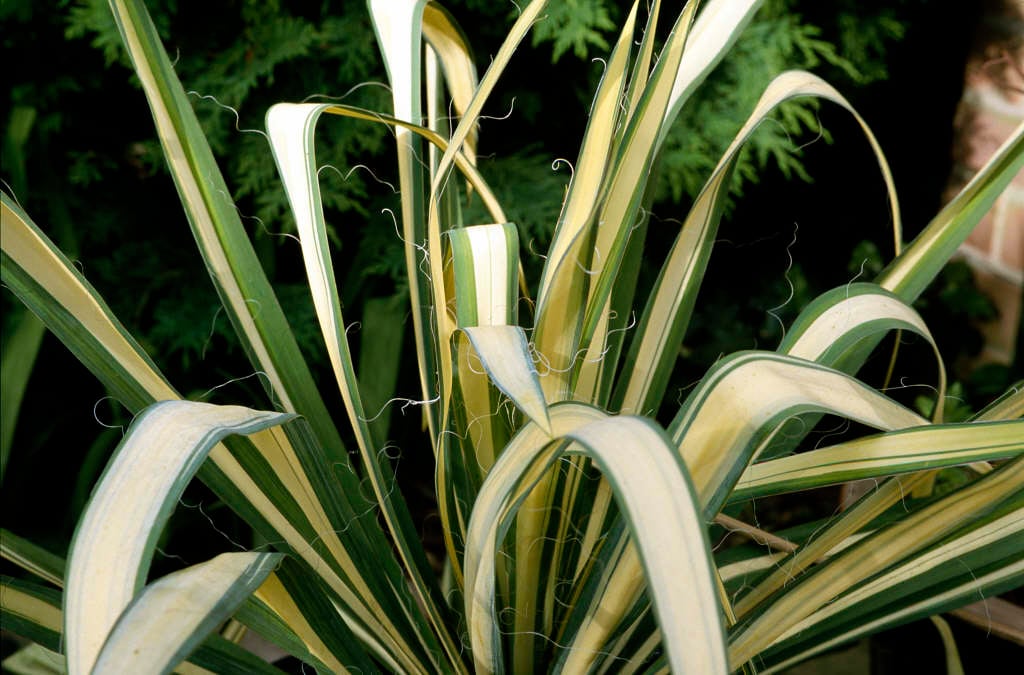Yucca flaccida 'Golden Sword' (v)
needle palm 'Golden Sword'
A small, stemless evergreen shrub forming clumps of erect, variegated blue-green leaves, drooping towards the tips, with a central band of creamy-yellow. Bell-shaped creamy-white flowers in erect panicles to 1.2m tall appear in late summer

Buy this plant
Size
Ultimate height
1–1.5 metresTime to ultimate height
10–20 yearsUltimate spread
0.5–1 metresGrowing conditions
Moisture
Well–drainedpH
Acid, Alkaline, NeutralColour & scent
| Stem | Flower | Foliage | Fruit | |
| Spring | Blue Green Yellow Variegated | |||
|---|---|---|---|---|
| Summer | White | Blue Green Yellow Variegated | ||
| Autumn | Blue Green Yellow Variegated | |||
| Winter | Blue Green Yellow Variegated |
Position
- Full sun
Aspect
South–facing or West–facing
Exposure
Exposed or Sheltered Hardiness
H4Botanical details
- Family
- Asparagaceae
- Native to GB / Ireland
- No
- Foliage
- Evergreen
- Habit
- Bushy
- Potentially harmful
- Skin allergen. Wear gloves and other protective equipment when handling Pets (dogs, cats): Harmful if eaten - for further information and contact numbers regarding pets, see the HTA guide to potentially harmful plants
- Genus
Yucca can be evergreen perennials, shrubs or trees, with dense or loose rosettes of stiff, sword-shaped leaves and tall panicles of bell-shaped flowers
- Name status
Accepted
How to grow
Cultivation
Easy to grow in sheltered, well-drained beds, where there is full sun all day
Propagation
Propagate by bud cuttings which are treated as softwood cuttings or take stem cuttings which are treated as hardwood cuttings. Root cuttings can also be used. Division of clumps is also possible
Suggested planting locations and garden types
- City and courtyard gardens
- Cottage and informal garden
- Patio and container plants
- Coastal
- Gravel garden
- Flower borders and beds
Pruning
Pruning not normally needed, but damaged leaves and spent flower spikes can be removed as necessary in the spring
Pests
Diseases
May be susceptible to leaf spot
Love gardening
Sign up to receive regular gardening tips, inspiration, offers and more
View our Privacy Policy
Get involved
The Royal Horticultural Society is the UK’s leading gardening charity. We aim to enrich everyone’s life through plants, and make the UK a greener and more beautiful place.